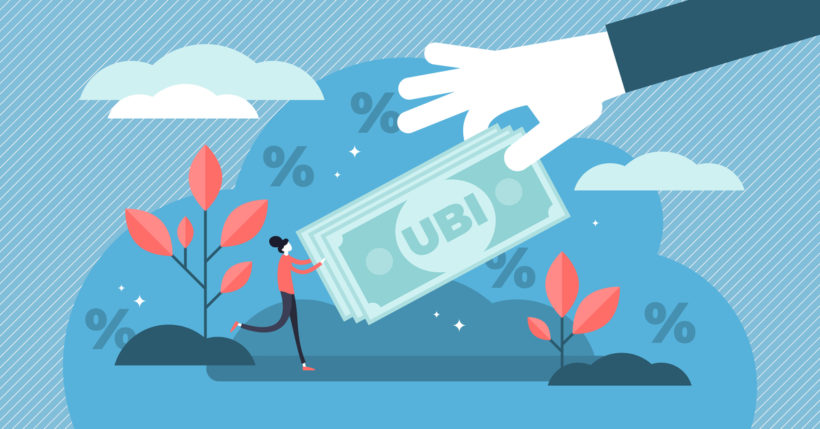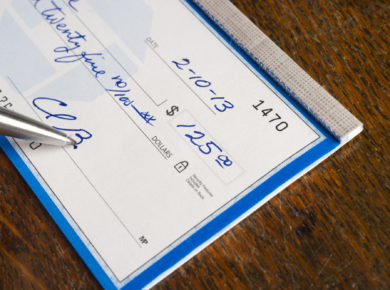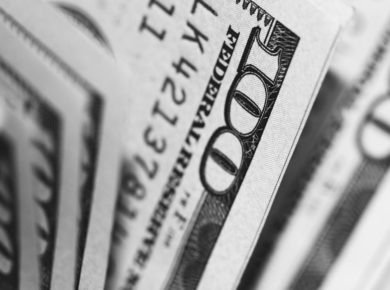If you have turned on the TV or scrolled through a social feed in the last several months, you may have heard of the term Universal Basic Income.
Many readers have written in to ask us what is Universal Basic Income, also known as simply basic income, or as UBI. If you have questions for us, we would love to answer them here.
Why is Universal Basic Income needed?
One reason for Universal Basic Income in 2019 and beyond is automation. It has been surmised that one in three Americans are at risk of losing their jobs in the next decade due to the rise of the robots, computers, and overarching new technologies.
The most popular job in most states is a truck driver, self-driving cars at risk for stealing those jobs. The second most popular job in many states in retail / fast-food. Fast-food workers are already being replaced by self-ordering kiosks, and increasingly in grocery stores, self-checkouts are taking over more floor space.
At a basic level, UBI is a program that would give citizens of a country a certain amount of money with no strings attached.
Table of Contents
- Why is Universal Basic Income needed?
- Universal Basic Income has five attributes
- Why is UBI such a big deal in 2020 and beyond?
- Reasons for & against Universal Basic Income
- Does Universal Basic Income Actually Work?
- Famous People who believe in Universal Basic Income
- How much will Universal Basic Income cost and who will pay for it?
Universal Basic Income has five attributes
- Universal- Well, it’s in the name, so you may have figured such. Universal means that all citizens receive the payment.
- Individual- This means that each person or adult is a recipient of the payment, not each household.
- Regular- The disbursements are made regular or periodic payments.
- Cash- Funds are paid in cash and not vouchers, coupons, or other mediums.
- Unconditional- Potential recipients cannot lose regular payments and do not have to prove employment, disability, or even willingness to work.
If one or more of these are missing, then the program being discussed is not truly Universal Basic Income.
Why is UBI such a big deal in 2020 and beyond?
Universal Basic Income is a phrase that dates back to the 16th century by Sir Thomas More, where he depicted a society where every person was to receive a guaranteed income. With the fast-paced changes to our economy and more so the rise of robots replacing individual jobs, UBI is coming to the forefront of political and government discussions.
Universal Basic Income has been popularized as of late by Democratic presidential candidate, Andrew Yang. He proposes a $1,000 “Freedom Dividend,” which is UBI, and he proposes $1,000 per month for every adult in the USA.
On its most basic level, UBI can replace all forms of social services, which include food stamps, disability, unemployment payments.
Reasons for & against Universal Basic Income
Reasons in favor of UBI-
- It could change the generational poverty epidemic and may even be cheaper in the long run due to folks needing fewer social services.
- Additionally, it would allow for people to surpass the struggle to survive and start new businesses and even seek post-secondary education.
Reasons Against UBI-
- Critics argue that a universal basic income would be much too expensive to implement and may create adverse incentives to work.
- Potentially replacing all social services is a large policy shift that may not be welcomed by all participants who enjoy the current subsidies.
Does Universal Basic Income Actually Work?
UBI has been tested in several countries and even in the USA. The best example of this in America is in Alaska. The Alaska Permanent Fund pays a partial basic income to all residents since its inception in 1982 and still does in the present day. The dividend or payment has ranged from $300 near its onset and reached an all-time high of over $2,000 per person in 2008.
In more recent years, the payment is around $1,000. The reason for the variability in the payment is the amount is based on revenue from oil mining, which is largely dependent on the price of oil. All 650,000 Alaskan residents receive the payment on an annual basis regardless of employment status, age, income level as long as the individual meets the residency requirement.
Mouchine Guettabi, a researcher at the University of Alaska’s Institute of Social and Economic Research, has found there are some positive and negative results of the Permanent Fund Dividend and how these results may be extrapolated to other states or countries.
Mouchine found these impacts on employment, crime, obesity. Here he is assuming the dividend to be $1,000.
- Employment- Women continue working, but they work fewer hours, and 1.8% more men work. In the three months after the distribution, about 2,000, more jobs are added to the economy.
- Crime- In the four weeks after a distribution, crimes (inclusive of substance use-related crimes) increase by about 10%. However, in the two weeks after a distribution, property crimes decreased by about 8.5%.
- Childhood Obesity- A child born in Alaska is 4.5% less likely to be obese. There may be other factors involved outside of the distribution.
Famous People who believe in Universal Basic Income
Barack Obama– “It provides dignity and … a sense of purpose. We are going to have to consider new ways of thinking about these problems.”
Elon Musk– “There’s a pretty good chance we end up with a universal basic income, or something like that, due to automation,” said Musk. “I’m not sure what else one would do. That’s what I think would happen.”
Mark Zuckerburg– “Too many people who gave up on pursuing their dreams because they didn’t have a cushion to fall back on if they failed.” and “People like me should pay for it, and a lot of you are going to do really well, and you should, too.”
Richard Branson– “A basic income should be introduced in Europe and in America,”
Martin Luther King Jr.- “We are demanding an emergency program to provide employment for everyone in need of a job, or if a work program is impractical, a guaranteed annual income at levels that sustain life in decent circumstances.”
How much will Universal Basic Income cost and who will pay for it?
Giving everyone $1,000 per month is not a cheap endeavor, and the rich or ultra-rich don’t make or even have enough money to sustain this UBI program for the long haul. Bridgewater Associates, an investment management firm, estimates it would cost taxpayers $3.8 trillion annually. That equates to nearly all existing taxes that are being collected currently, 78% to be exact.
To spend money, or give it away, the government must have money and more of it.
Andrew Yang has four potential revenue sources to fund UBI
1. A Value-added Tax-
A value-added tax (VAT) is a system where taxes are collected at each point in the production process, inclusive of the final sale by the customer. For instance, if an item costs $115, the seller keeps $100 and pays $15 to the government. Plus, before the prior sale, if the seller needed to buy parts to build the item, it would have paid VAT by way of the first sale.
The United States is one of the few developed countries that does not have a value-added tax.
2. Improved Current spending
The government spends spend over $1 trillion on health care, homelessness, and incarceration. It is estimated that UBI would save between $100-$200+ billion as people would be able to improve their self-care.
We spend over $500 billion a year on welfare, such as food stamps and disability. UBI may replace, or at least give citizens a choice between their current benefits or the UBI payments.
3. New Revenue
Similar to the impact found in the Alaskan Basic Income already discusses, the disbursement of funds may result in up to 4.6 million new jobs and nearly a trillion in new revenue from economic growth, per the Roosevelt Institute.
4. Taxes
Many companies pay zero federal income tax, such as Google and Amazon. Also, the VAT, other taxes may have to change. The middle and upper classes will likely see an increase in taxes as there is seemingly not quite enough money to go around even with the above three solutions.
Many thoughts were taken from Andrew Yang’s Freedom Dividend website.
Now that you understand Universal Basic Income, what do you think? Do you think it’s a good idea, should it be enacted in America? Let us know in the comments below…
You May Like: The Ultimate Guide To The 401k





One comment
#YangGang